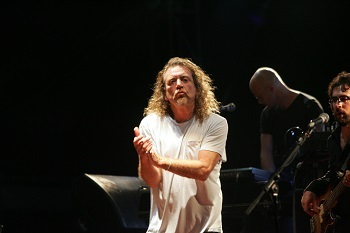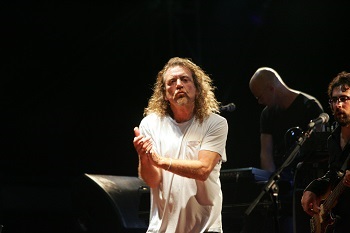Led Zeppelin fans were pleased to hear that a California jury in a copyright infringement case issued a verdict that the Defendants, members of the Led Zeppelin band and others, did not commit copyright infringement when they wrote and performed the musical composition “Stairway to Heaven”. The exact question answered by the jury on the verdict form was, “Do you find by a preponderance of the evidence that original elements of the musical composition Taurus are extrinsically substantially similar to Stairway to Heaven?” The jury marked “No” on the verdict form.
The Plaintiff in the case was the Trustee for the Randy Craig Wolfe Trust. Randy Craig (a/k/a Randy California) was the founding member of the rock band, Spirit. Randy California wrote a song entitled “Taurus” which was included on Spirit’s self-titled album in 1968 and performed throughout the country. Randy California drowned off the coast of Hawaii in 1997. The Trust was established after his death by his mother. The Trustee of the Randy Craig Wolfe Trust is Michael Skidmore, the Plaintiff.
The Plaintiff alleged that the elements of copyright infringement were established because the Led Zeppelin band had access to the musical composition by having close interaction with the band Spirit and performing as an opening act for Spirit. Plaintiff claimed that to a reasonable observer, the iconic notes, melodies and chord progressions of “Stairway to Heaven” were almost identical to “Taurus” therefore there was a substantially similar element between the two compositions.
James Page and Robert Plant, members of Led Zeppelin, are listed as the writers of the song “Stairway to Heaven” which was released in 1971 and a copyright registration was issued by the US Copyright Office in 1972. The Led Zeppelin band toured the country in 1968 and opened for the band Spirit. The Defendants claimed many affirmative defenses in response to the Amended Complaint filed with the court including, “Stairway to Heaven” was an independent creation, de minimis infringement, fair use, unreasonable delay in the assertion of the claim and prejudice as a result of the delay, and statute of limitations.

BUDAPEST – AUG 9: Robert Plant, former frontman for Led Zeppelin, performs in concert at the annual Sziget Festival in Budapest, Hungary, on Wednesday, August 9, 2006.
According to the court record, the jury listened to recordings of both musical compositions and reviewed the original sheet music that was filed with the US Copyright Office. Defendants James Page and Robert Plant both testified as to events that took place more than 40 years ago based on what they could remember. Experts in musicology testified for the Plaintiff and the Defendants. There were arguments over protected and unprotected elements of the composition. Two years of attorney arguments, three days of witness testimony and presentation of evidence led to a Jury Verdict for the Defendants. Now Plaintiff will have to battle in court when Defendants demand that the Plaintiff pay all of their attorneys’ fees.
The case was filed in May 2014, forty-six years after the creation of “Taurus”, forty-three years after “Stairway to Heaven” was released and seventeen years after the death of Randy California. The case went to a jury trial in June 2016 and lasted three days. If Randy California considered “Stairway to Heaven” to be an infringement of his musical composition, “Taurus” why was a copyright infringement case filed sixteen years after he passed on?
Special Assistance and Research from Marks Gray Summer Associate Austin K. Sherman
Crystal Broughan is an intellectual property law attorney with Marks Gray, P.A. If you would like to learn more about Marks Gray’s intellectual property law services please contact Ms. Broughan at [email protected] or 904-807-2180.
